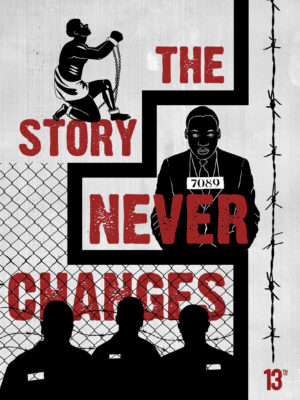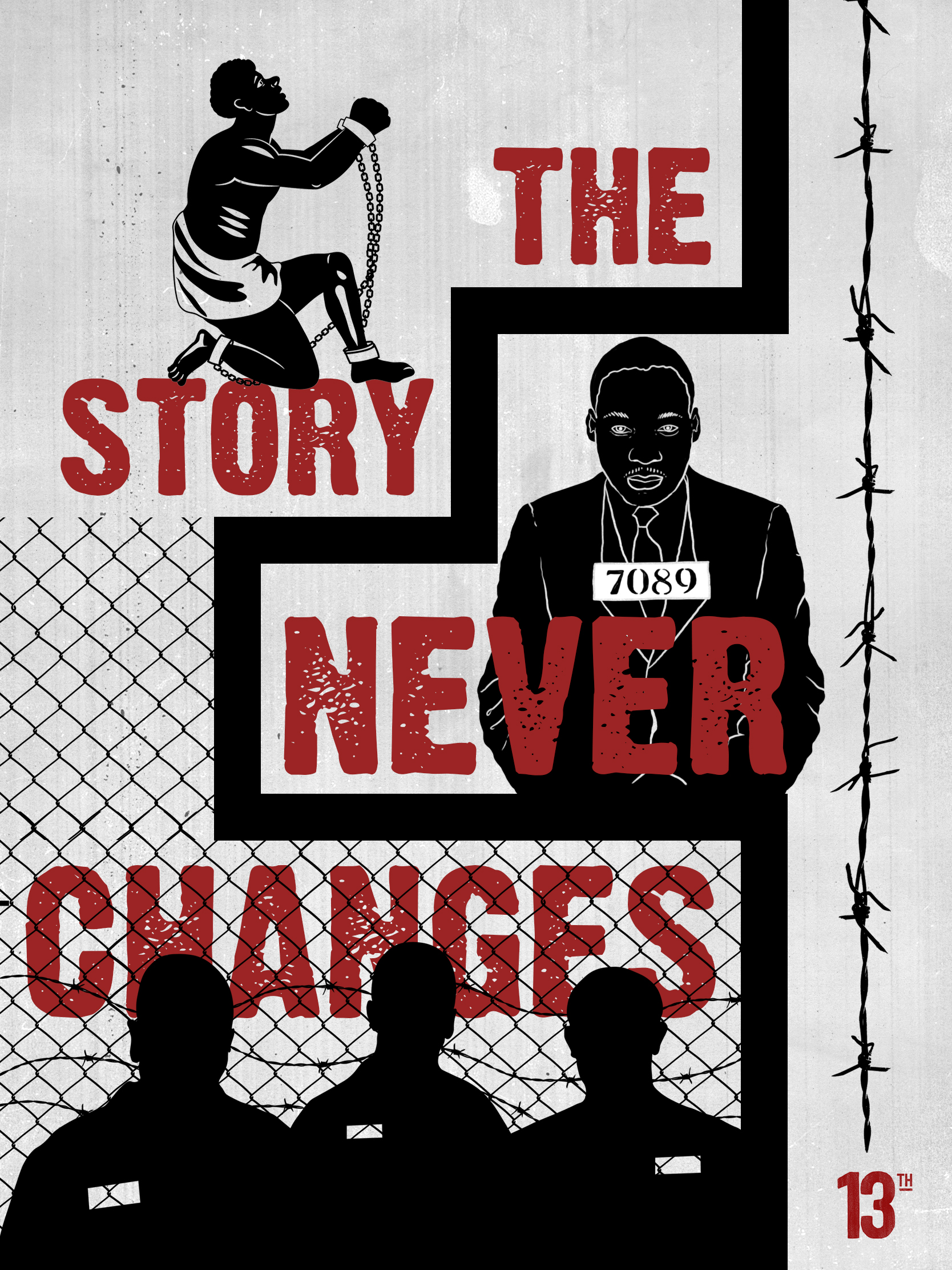If you have yet to see Ava DuVernay’s Oscar-nominated and Emmy-winning documentary “13th”, you should really make plans to screen it as soon as possible. This short commentary will surely not do it justice.

Release Year: 2016
Running Time: 100 min
Director: Ava DuVernay
Watch the trailer
Kevin Gannon, Professor of History at Grandview University, who is white, sums up the challenge we as country face today early in the film: “History is not just stuff that happens by accident. We are the products of the history our ancestors chose, if we’re white. If we are black, we are products of the history that our ancestors most likely did not choose. Yet here we all are together, the products of that set of choices. And we have to understand that in order to escape from it.”
This powerful film discusses the ways slavery has continued to oppress black people in the United States, long after the Thirteenth Amendment of the Constitution was ratified and adopted in 1865. Though the Thirteenth Amendment outlaws slavery, there is a clause that creates one major loophole: “except as a punishment for crime whereof the party shall have been duly convicted.”
This loophole has been exploited continuously since the adoption of the Thirteenth Amendment to continue to legally enslave black people. In order to use this loophole to full effect, blacks were targeted for arrest for such “crimes” as vagrancy and rounded up in large numbers to work the fields they had only so recently escaped. Thus the the mythology of black criminality, which is still so insidious today, was born and spread in order to keep a steady flow of free labor.
The prison population of the United States remained fairly constant until the 1970s, when the modern era of mass incarceration began. Richard Nixon started us down this path, with his talk of “law and order” and a “war on crime.”
Ronald Reagan “turned a rhetorical war into a literal one,” according to Michelle Alexander, author of the “The New Jim Crow.”
President Bill Clinton’s 1994 crime bill further accelerated the rates of incarceration while also slowing the release of prisoners thanks to the “three strikes” scheme that requires life sentences for people convicted of three felonies.
All of this history covered in the film leads up to a jarring revelation: that there are more black people in the United States under criminal supervision now than there were enslaved in the South in the 1850s. Though our total population represents only 5% of the world’s population, we are home to 25% of the world’s prisoners.
Another shocking aspect of the film was that among the many academics, activists, and politicians interviewed was none other than former Speaker of the House and failed Republican presidential candidate Newt Gingrich.
Even more amazing (for me, at least) was what he had to say: “The objective reality is that virtually no one who is white understands the challenge of being black in America.” This acknowledgement of racism in America and the multiple effects it has on the lives of black people was refreshing to hear from a Republican.
Jelanie Cobb, Professor of African American Studies at the University of Connecticut, addresses the harmful stereotypes that have been used against black people for centuries in the US in the context of the current fight against mass incarceration: “If you look at the history of black people’s various struggles in this country, the connecting theme is the attempt to be understood as full, complicated human beings. We are something other than this visceral image of criminality and menace and threat to which people associate with us.”
Watching this documentary would be a good first step to help dispel those stereotypes within ourselves and to hopefully inspire us to work together for greater racial justice in general, and reform in the criminal justice system specifically.
“13th” is currently available on Netflix, or can be seen at a screening by Wedgewood Meaningful Movies on Friday, October 13 at 7 PM. You can see a full list of locations and documentaries being shown by the Meaningful Movies Project here.

